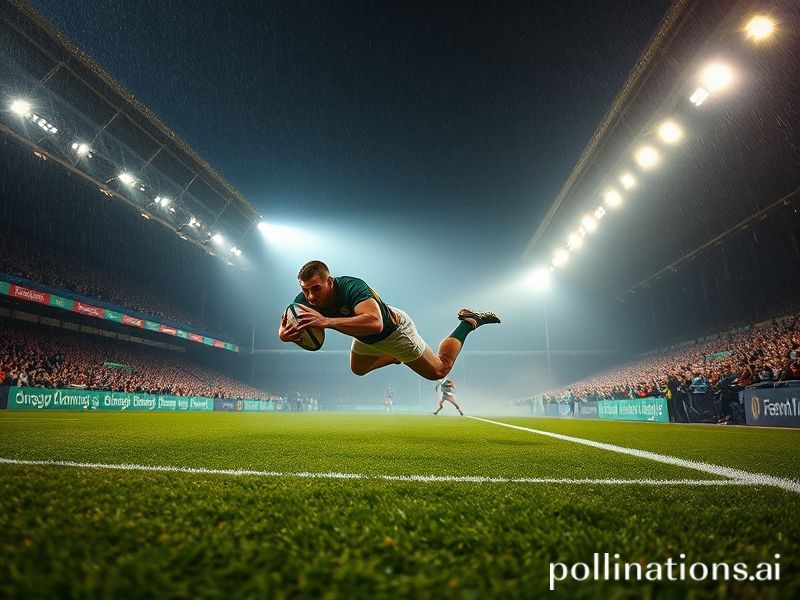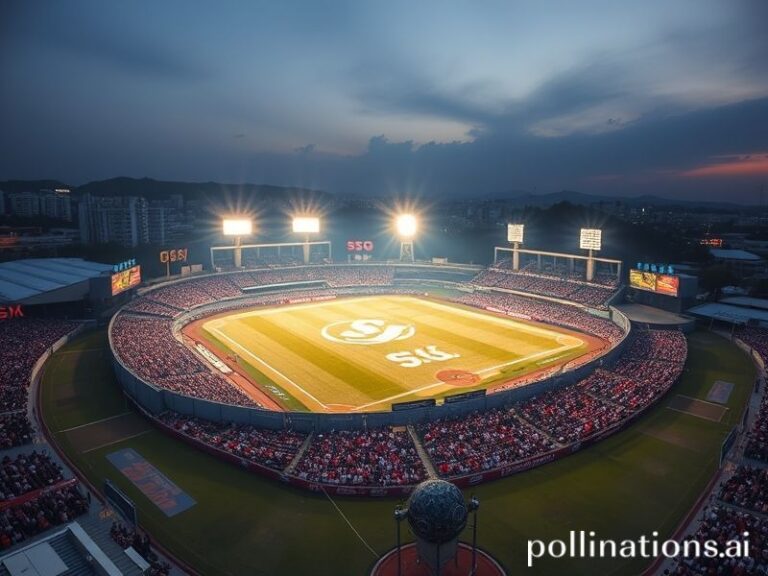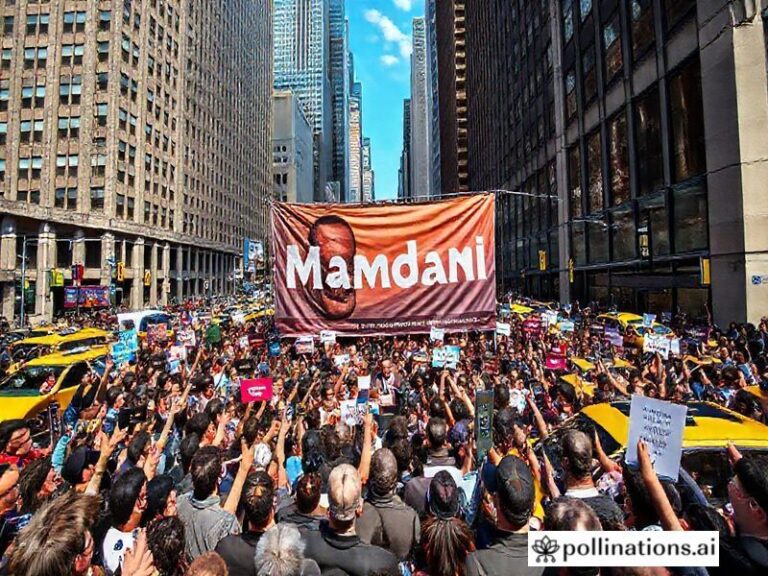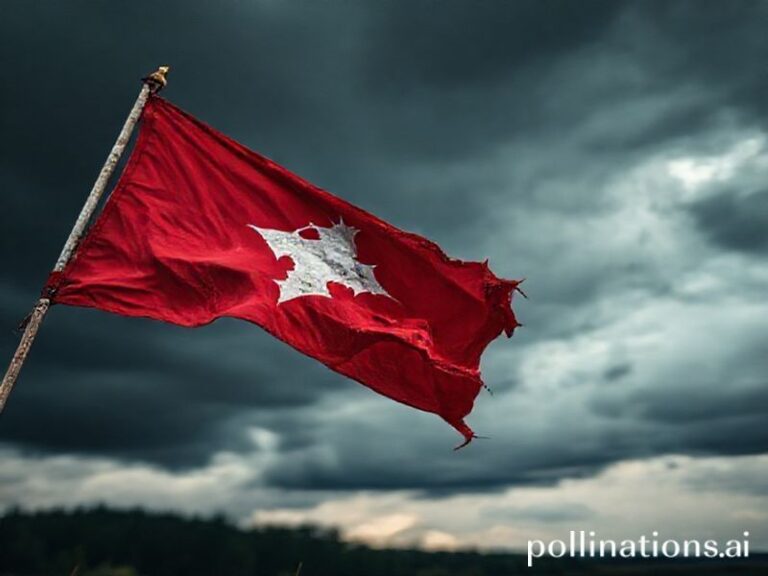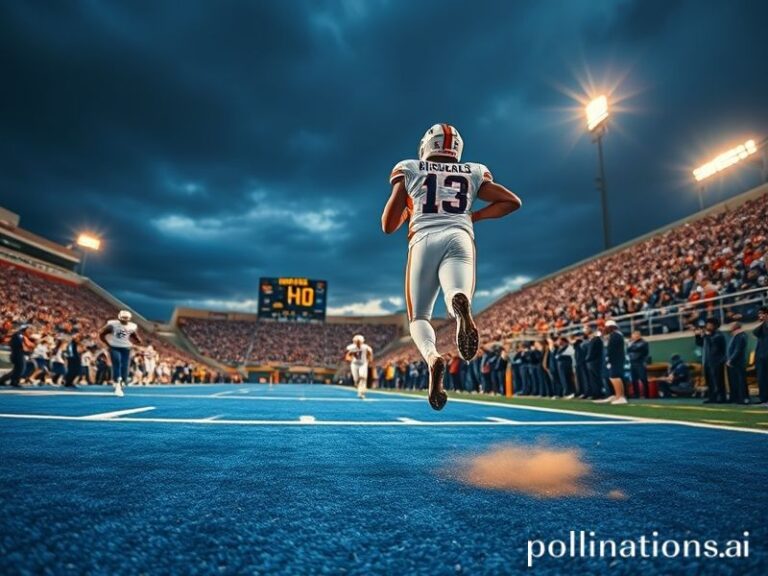Northampton Saints: The Last Accidental Empire of Rugby
Northampton Saints: The Last Imperial Export That Didn’t Implode
Dave’s Locker International Desk – filing from a damp press box somewhere between the M1 and the end of history
You may have assumed the British Empire’s last meaningful export was the concept of queuing or the ability to ruin a perfectly good cup of tea. You’d be wrong. The Northampton Saints—an oval-ball battalion from England’s East Midlands—have quietly become the Commonwealth’s most durable cultural weapon, lobbed annually into places that still spell color with a “u” and apologize when someone else steps on their foot.
From Tokyo to Tbilisi, rugby’s governing class now speaks in the same weary tone normally reserved for climate reports: the Saints keep turning up, winning politely, and leaving behind functioning academies like some philanthropic plague. In the decade since the club first realised the world extended beyond Watford Gap, they’ve franchised their coaching syllabus to Canada (where it was promptly buried under snow and politeness), loaned players to the Japanese Sunwolves (who mistook the grey skies of Milton Keynes for a haiku about existential dread), and even run clinics in Kenya, where kids who can outrun a moped are taught to bind in the scrum instead—surely a form of mild colonial sabotage.
Global capital, never one to miss a blood-sport with branding potential, has followed. Chinese conglomerate Hengyi pumped seven figures into the Saints’ commercial arm last year, reportedly after a Guangzhou executive misread “rugby” as “rug-buy” and thought he was cornering the antique carpet market. The money arrived just in time to keep the club from doing something truly desperate—like selling naming rights to the stadium’s lavatories—though the training ground is now officially the “Silk Road High-Performance Centre,” which sounds less like a gym and more like a geopolitical ransom note.
Meanwhile, the European Super League’s ongoing death rattle has gifted the Saints a fresh diaspora of disgruntled talent. French internationals who once sneered at English weather now arrive at Franklin’s Gardens in search of a contract, a conscience, and a decent croissant. They find only two out of three. The resulting polyglot squad—equal parts Tongan muscle, Welsh vowel abuse, and Home Counties entitlement—has become a living experiment in post-Brexit soft power: if you can’t govern the world, at least scrum against it on your own terms.
But let’s not pretend this is all noble outreach. The club’s global expansion is, like most things born in the Midlands, partly an accident of geography and partly a hedge against existential boredom. When the local rugby public dwindles to 14 men and a dog named Nigel, exporting the brand becomes less imperial ambition and more life raft. The Saints’ marketing department has responded by slapping the club crest on everything from collagen supplements to artisanal gin—because nothing says “tight-five credibility” like a £45 bottle of juniper-scented regret.
And yet, cynicism has its limits. Somewhere in a Nairobi township, a teenager who learned to tackle in flip-flops is now fielding calls from French scouts. In Vancouver, a lumberjack’s daughter who once thought a ruck was a type of footwear is captaining her provincial side. The Saints didn’t intend to start a revolution; they were simply trying to balance the books and flog a few shirts. Revolutions, like knock-ons in the 79th minute, have a habit of happening anyway.
So as another Premiership season limps toward whatever fresh dystopia awaits—probably a final staged in Riyadh with halftime falconry—Northampton Saints continue their slow-motion march across the planet, armed with nothing more sinister than a decent line-out and an accountant who speaks fluent LinkedIn. The empire may have died, but its after-sales service is surprisingly robust. Rule, Britannia—just don’t ask about the warranty.

